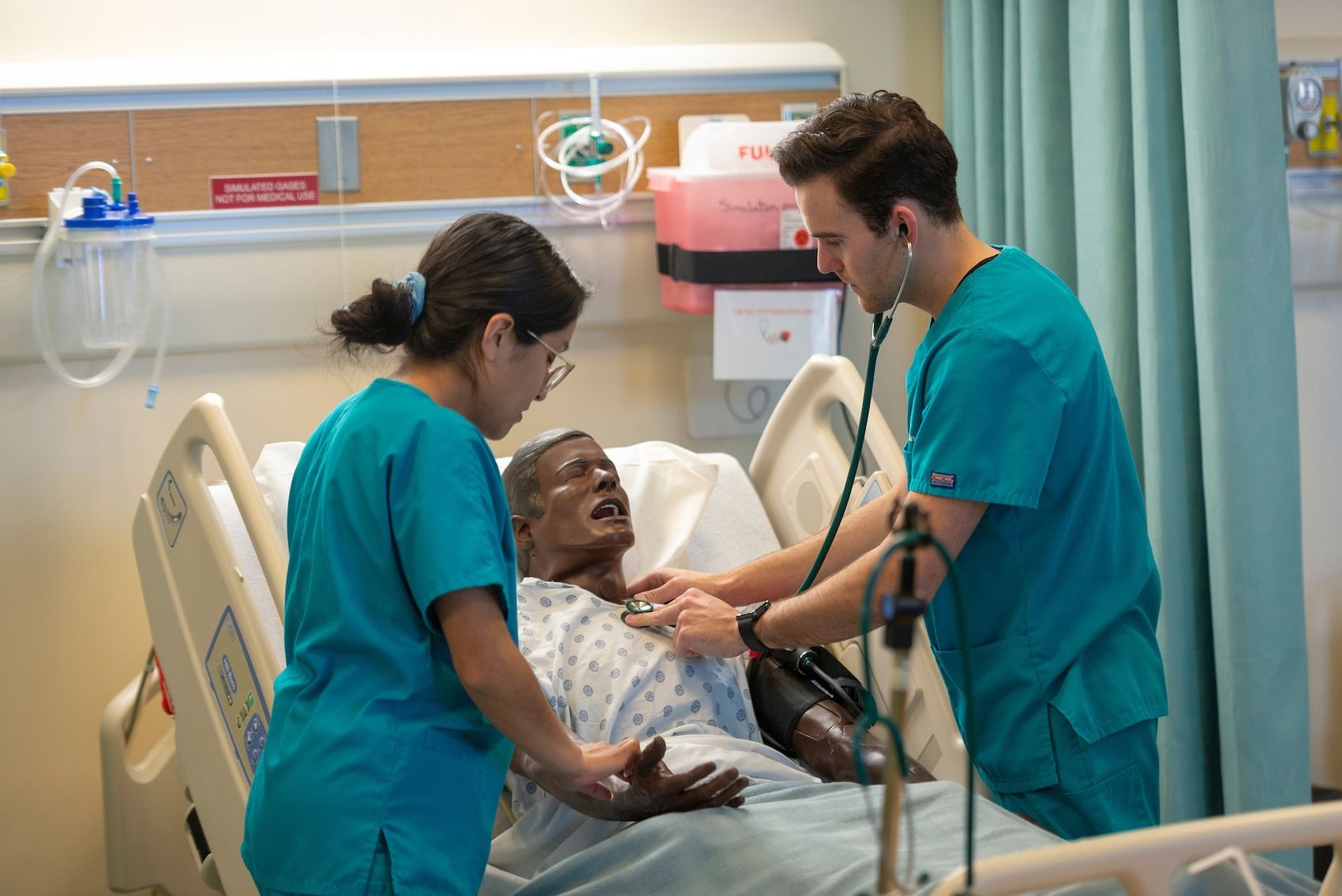
Photo: Jeff Janowski/UNCW
The Society of Simulation in Healthcare recently granted full accreditation in the area of Teaching and Education to the College of Health and Human Service's Simulation Learning Center in McNeill Hall.
The 10,000-square foot state-of-the art Simulation Learning Center provides future healthcare practitioners with realistic simulation technology across a variety of specialties to prepare professionals for a 21st century nursing practice. The Simulation Learning Center offers experiential learning from low fidelity simulation manikins to advanced critical care with high fidelity manikins and standardized patients. Students train in a challenging, safe environment and gain hands-on experience to develop confidence in the clinical setting.
Simulation learning in the College’s state-of-the-art facilities allows undergraduate and graduate students to practice beginning and advanced clinical skills, refine communication, develop critical thinking skills through challenging evidence-based simulation scenarios and practice advanced assessments and skills. Each lab is equipped with observation rooms to facilitate faculty monitoring and debriefing, ensuring comprehensive learning experiences across diverse healthcare scenarios.
Simulation spaces include:
- Health Assessment Laboratory
- Acute Care Laboratory
- Critical Care Laboratory
- Pediatric Laboratory
- Maternal-Infant Laboratory
- Operating Room/Emergency Room Laboratory
- Outpatient Clinical and Exam Rooms
- Home Care Laboratory
The accreditation process was rigorous – showcasing adherence to core standards and educational criteria set by the Society for Simulation in Healthcare (SSH). In addition to mandatory accreditation materials, comprehensive documentation detailing standard operating procedures for lab management, faculty and staff expertise, and the array of simulation-based educational opportunities available was submitted.
Dr. Patricia Suplee, director of the School of Nursing said of the distinction, “Receiving accreditation from the Society of Simulation in Healthcare for our Simulation Learning Center is a testament to our commitment to excellence in nursing education. This recognition affirms our dedication to providing realistic and immersive learning experiences that prepare our students to deliver exceptional patient care with confidence and competence."
“This accreditation is a wonderful representation of the amazing work being done by our faculty and staff to run a state-of-the-art simulation learning lab within our college,” said Dr. Jack Watson, dean of the College of Health and Human Services. “This lab serves several hundred students each year and helps to provide them with the highest quality training to ensure they are prepared for the clinical work they will do with real patients. Most incredibly, the site visit team that conducted this accreditation visit found that our simulation learning lab met all of the accreditation criteria established by the Society for Simulation in Healthcare.”
The Society for Simulation in Healthcare is a non-profit organization founded in 2004 to advance the application of medical simulation in healthcare. The organization serves as a resource for young professionals in their growth in medical education and administration.
This article has the following tags: College of Health & Human Services Academics School of Nursing Accomplishments


